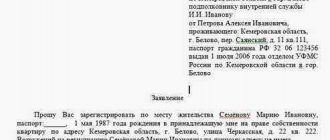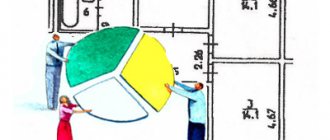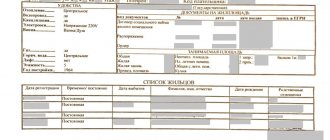Home / Family law / Inheritance
Back
Published: 01/28/2020
Reading time: 4 min
2
1207
Working with inheritance cases, I often witnessed the bitter disappointment of heirs when they learned about the debts of the testator. After all, the debts passed to them along with the rest of the inherited property.
- Legality of inheritance of debts Debts of the testator passed on by inheritance
- How debts on bank loans are inherited
- To what extent can banks collect debt from heirs?
- Inheritance of debts by minors
- Is it possible to get out of debt?
How are heirs determined?
There are two types of inheritance: by will and by law. According to a will, this is when there is a certain order, notarized. In the second case, a queue of heirs is formed. These are heirs of the first stage, or, if there are none, of the second stage.
“After which the hereditary mass is formed, i.e. everything that belonged to the deceased before death. These are property, money, and also debts. Then a group of heirs is formed: according to the will, or heirs of the 1st stage (these are children, daughter, spouse of the deceased, etc.). If there was no will, then the inheritance is divided equally between them. The same thing happens with debts,” explains the expert.
Questions and Answers Do I need to pay tax on money received as an inheritance?
Limitation period for debts of the testator
The debts of the deceased are subject to the general statute of limitations (Article 196 of the Civil Code of the Russian Federation). It is 3 years. The period begins to run from the moment the creditor learned of the violation of his rights.
Example. Alexander took out a mortgage for the apartment. The man received an unstable salary, so he kept money in his mortgage account to pay loan installments for 3 months in advance. After his death, the loan installments were written off on time for another 3 months. When the money in the account ran out, the bank began to look for the debtor. Having found out that he had died and his heirs lived in the apartment, the bank addressed its demands to them.
If creditors have not turned to a notary or heirs to collect the debts of the deceased within 3 years from the date of his death, then it will not be possible to collect the debt through the court.
Often, heirs, when accepting property, rely on the statute of limitations. They hope that the creditor will not find out about the death of the deceased and the deadlines will expire.
But, as practice shows, creditors deliberately wait a long time before presenting claims so that the heirs can assume their rights. Since often, upon learning about the debts, the successor refuses to accept the inheritance.
Can I refuse a debt that I inherited?
Yes. Only in this case he will have to give up other property to which he claims as an heir. Since the amount of debt is calculated based on the value of the existing inheritance. According to Postanyuk, the amount of debt cannot exceed the sum of the value of this property and the rights that they assume. “For example, a person inherits a Zhiguli car worth 10 thousand dollars. Accordingly, his obligation to repay the debt cannot be more than 10 thousand dollars, even if he has more debts. That is, it is regulated by the amount of rights that the heir assumes,” says the lawyer.
If the amount of debts significantly exceeds the value of the inherited property, then the heir has the right to refuse it, and, therefore, the debt.
Refusal of inheritance after its acceptance
So, you can refuse an inheritance before the inheritance is accepted, and after consent has been given to accept the inheritance, but for some reason the heir has changed his mind. However, there are several conditions that must be met:
- An application for refusal to enter into inheritance rights must be properly formalized.
- The registration procedure must be followed.
- The deadline for drawing up an application for refusal of inheritance is not extended, and the heir must have time to complete everything within six months. For example, if an inheritance case was opened, and an application for the right to enter into an inheritance was submitted three months later, then there is only three months left to think about whether to refuse the inheritance or not. These deadlines must be met.
Refusal of inheritance in case of its actual acceptance
The actual acceptance of the inheritance is considered to be the fulfillment of the obligations of the heir, even if he did not submit an application for inheritance. These actions include:
- Maintaining the safety of inherited property;
- Availability of expenses associated with the maintenance of inherited property;
- Payment of debts of a person whose property is inherited.
Refusal of such inheritance is carried out according to slightly different rules, and they are worth dwelling on separately.
- In this case, the period is set the same as in other cases, the same, six months. However, in this case, it is possible to restore the deadline that was missed so that a refusal can be issued.
- It is necessary to submit an application to the court, which will indicate sufficiently valid reasons that did not allow the heir to complete the entire necessary procedure earlier. Moreover, it will be necessary to prove in court that, due to the above reasons, the heir really did not have such an opportunity.
- The heir himself or people who are interested in this can challenge the acceptance of the inheritance.
Consequences of refusing an inheritance
- Entry into inheritance rights is carried out within six months and is confirmed by a special document.
If the heir has written a statement renouncing the inheritance and registered it with a notary, then it is impossible to reverse the matter. After refusing to inherit property, the heir has no right to any part of the inheritance. The waiver only applies to the entire property.
To resolve your issue and receive free legal advice, contact inheritance lawyer Igor Vitalievich Goloveshkin by phone +7 (495) 241-12-69 and all your questions will be resolved as quickly as possible.
Rating 0% (0 Votes)
What if I want to keep a conditional apartment or car?
In this case, you will have to repay the loan and interest in full. This also includes a six-month period before the official entry into inheritance. If a person has not learned about the opening of an inheritance within 6 months after the person’s death, then according to Art. 1155, the court can restore this period to him and allow him to enter into inheritance.
Question answer
What happens to the unclaimed deposits of deceased people?
First, you need to contact the bank, taking with you the passport, the loan agreement of the deceased and all the necessary documents, and tell the bank employee fully about your situation. The procedure for re-registering the contract in your name will begin. The bank manager will check whether the borrower has paid the insurance amount. If the loan was for a large amount, then it could well be secured by insurance that would cover the loan. But there are many nuances here. It is also necessary to prove that the death of a person is an insured event. Thus, the insurance will not be paid if the borrower committed suicide, died in war or in prison, or, for example, died as a result of an injury received during parachuting. Moreover, insurance may not cover your debt in full if there were late payments and other penalties. You will need to use your maximum diplomatic skills to convince the bank to cooperate.
If there was no insurance or it does not cover the entire debt, the bank may make concessions and restructure your loan - for example, by reducing the interest rate. This also needs to be negotiated. “It is in the interests of the bank that a person at least fulfills his monetary obligations to him. And if there were high interest rates and the bank understands that it is better for it to close this loan, then it can reconsider the terms of the loan agreement and reduce the loan interest rate. But it is clear that nothing will drop to zero. All this will be based on the key rate of the Central Bank, which is the lower limit,” says Belyaev.
Official website of the Supreme Court of the Russian Federation
The Supreme Court made a very important clarification when it reviewed the outcome of a dispute over the inheritance of a citizen who, during his lifetime, owed a lot of alimony. Is it possible to collect alimony debts if the defaulter has died and the heirs are counting on his property? Considering the number of citizens who owe alimony to their children, this is far from an idle question.
During life, a completely understandable scheme operates against the defaulter against his children: courts - bailiffs - collection. But what if the debtor died? Is there a mechanism for collecting alimony debts? After all, the same bank debt will be collected from the heirs. How then does alimony debt differ from it?
Our story began in a trivial way - after a divorce, the court left the child to the mother, and ordered the father to pay child support. The man, by the way, was deprived of parental rights, which does not exempt him from alimony. The court determined what percentage of earnings the man owes to his little daughter.
But the man never started paying any money. Then his ex-wife went to court. Enforcement proceedings were initiated.
But at this time the ex-husband died. And the question of inheritance arose. In addition to his minor daughter, the heir of the deceased was his mother. The inheritance included an apartment worth several million rubles. By that time, the alimony debt was approximately close to this amount. Together with a penalty on the date of death of the debtor.
The woman, who never saw alimony payments during the life of the child’s father, decided: if the mother of her ex-husband accepted the inheritance, then she must be responsible for the alimony debt and compensate for the penalty for their untimely payment. She went to court demanding a penalty. The first instance agreed with her and satisfied the claim, collecting a penalty from his mother. The appeal upheld the decision.
Then the mother of the alimony worker, who did not agree with this verdict, complained to the Supreme Court. And after studying the case, he explained where the local courts made mistakes.
The main idea expressed by the Judicial Collegium for Civil Cases of the Supreme Court is as follows. The right to receive alimony is not part of the inheritance: it is considered a debt inextricably linked with the personality of the testator. This means that alimony obligations terminate when the payer dies, the high court emphasized. But at the same time, the heirs receive debts that were on the day of the testator’s death.
Here is a direct quote: “Arrears of alimony incurred during the life of the testator are a monetary obligation that is part of the inherited property. The obligation to fulfill it passes to the heirs within the limits of the value of the inherited property transferred to them.”
Translated into everyday language, this should be understood this way - if at the time of death the testator had an unpaid debt, then it must be paid by the heir who accepted the inheritance, because it is he who is responsible for the debts of the testator within the limits of his share.
The debt for alimony during inheritance is equal to any other debt and must be repaid by the heirs within the limits of the estate. It is obvious. But in the matter of inheriting alimony debts, there are certain details that must be taken into account.
Debt for alimony during inheritance is equal to any other debt, and it must be paid
So, in order to receive an alimony debt, it is necessary that at the time of opening of the inheritance the debt was calculated by the bailiff, and the enforcement proceedings were not completed. Otherwise, the courts may refuse to collect.
Here's what the step-by-step instructions look like for those who have found themselves or may find themselves in a similar situation.
In order not to miss the opportunity to present the alimony debt to the heirs, you must have in hand a court decision or a court order to collect alimony. Then contact the bailiff for enforcement. It is necessary to ensure that the enforcement proceedings are not completed, and that the bailiff regularly calculates the debt and issues an appropriate resolution. It is the availability of a debt calculation that will allow you to determine the amount of debt at the time of opening the inheritance and calculate the penalty.
Another important point that should not be forgotten. If a debt has been incurred for alimony, the culprit also pays a penalty - half a percent of the unpaid amount for each day of delay. When the alimony debt is transferred to the heir, he will also have to pay a penalty, which is calculated as of the date of death of the testator.
Like arrears for alimony, a penalty is a non-personal debt. Therefore, the obligation to pay it passes to the heir of the debtor. The person who accepted the inheritance is obliged to repay these amounts within the value of the inheritance transferred to him, the Supreme Court emphasized.
According to the high court, the district court, examining this case, came to the correct conclusion that the obligation to pay alimony penalties, “calculated on the day the inheritance was opened, passes through the inheritance.” This means: if there was no court ruling establishing the guilt of the alimony payer during his lifetime, then the heirs should not pay the penalty.
Text: Natalya Kozlova
Rossiyskaya Gazeta - Federal Issue No. 66 (8417)









